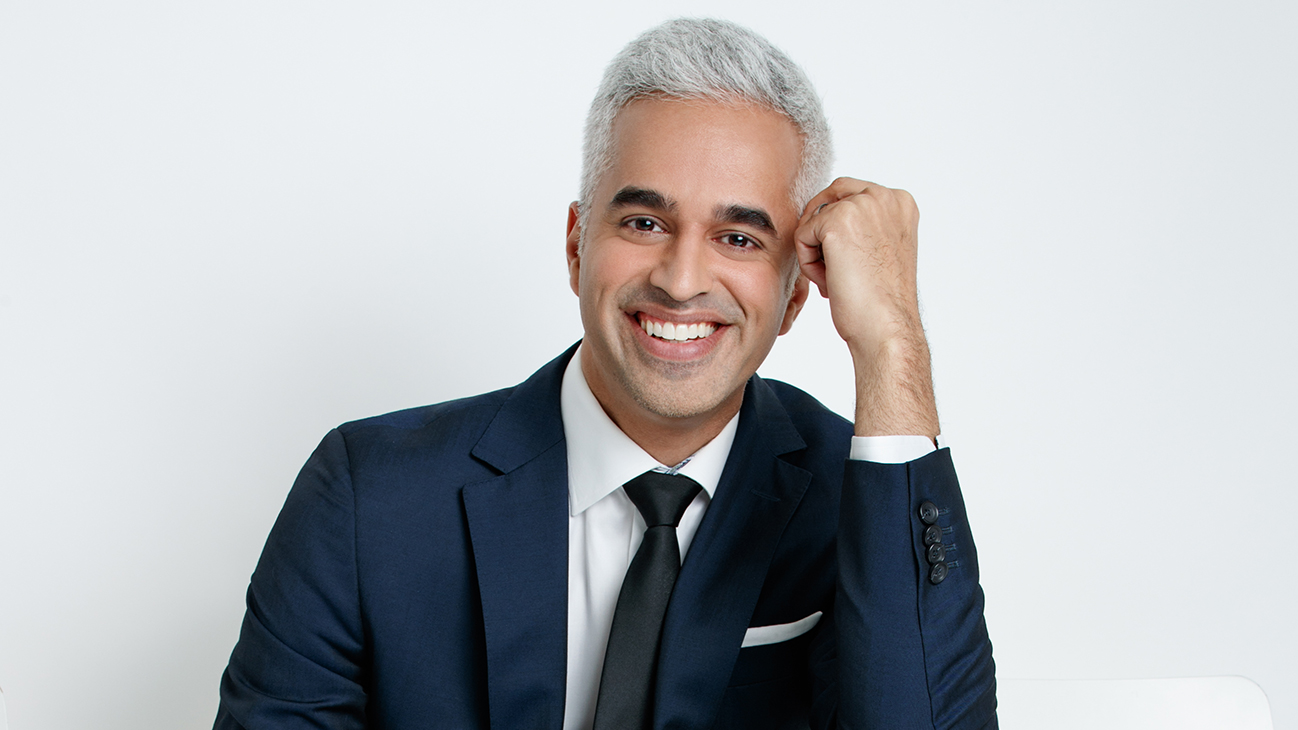Butterflies, sweaty palms, dry mouth — public speaking is one of the most anxiety-inducing activities for many. As an expert on human connection and an accomplished broadcaster, Riaz Meghji shared his secret to stopping this anxiety in its tracks. You need to stop focusing on yourself, he says, and instead learn to shift that focus outwards.
Riaz has 17 years of television experience, interviewing experts on current affairs, sports, entertainment, politics, and business. But, when he started speaking professionally, he experienced social anxiety on stage and began experimenting with ways to tame it.
In an article for Harvard Business Review, Riaz writes that the number one cause for these pre-presentation jitters is almost always uncertainty — will the audience like us, will we keep their attention, will we succeed in having our message heard?
After trying all the tactics, from visualizing his desired outcome to taking deep breaths and being beyond prepared, Riaz finally discovered that to beat his anxiety, he had to shift his focus from himself to others.
It takes time, patience, and practice, Riaz writes, but here’s how to get it started.
1) Be a Giver, Not a Taker
A taker will always have more anxiety when speaking because they need and want validation from their audience. This will leave them constantly wondering what their listeners are thinking. A struggle made even more difficult when communicating virtually with no in-person audience to feed off of.
Givers, on the other hand, focus on serving instead of seeking validation. They connect with stakeholders prior to presenting to gain a better understanding of what their audience needs.
“As a result…” Riaz writes, “the focus of their presentation becomes less about them and more about helping the other people in the room grow and meet their goals.”
It changes a presentation to an act of service, but it requires you to get out of your own head. This is where step two comes in, writes Riaz.
2) Build Relationships Before You Speak
Find out who will be in the room before your presentation date. This allows you to do some one-on-one research with a few influential people to determine what their needs are (or the company’s needs) as it pertains to your presentation topic. As you prepare, incorporate these findings into your presentation where they best fit.
“For example,” Riaz writes, “let’s say you have an upcoming meeting with a few important stakeholders at your organization. Your goal as the presenter is to persuade your manager and the head of the marketing department and their team to launch a TikTok channel to help grow your brand awareness. Instead of presenting a plan you came up with entirely on your own, talk to both your boss and the head of marketing about their thoughts, concerns, and team goals beforehand.”
Of course, you will add your own research in there as well, but now that you have gained insight into the overall needs of your audience, you can address those concerns head on in your presentation.
On the flipside, once the day has come and you are presenting, you can speak directly to those people you have already formed connections with. “Doing so will help you take on a personal and empathetic tone — allowing you to more easily connect with your listeners,” Riaz writes.
It will also shift your focus from yourself to your audience, which will ease some of those nerves.
3) Stop Scanning, Start Seeing
Don’t look into the abyss! Instead choose your “fab five” as Riaz calls them. This is the tactic Riaz uses to rein in his own anxiety as he feels it bubbling up. Instead of constantly scanning the entire room, he’ll choose specific people to consistently lock eyes with so that it feels like he’s having several personal conversations instead of public speaking.
Take your time with them. Share a thought and then move your focus to the next person. Use the entire space, Riaz writes, as people sitting on the sides or in the back will appreciate the attention.
In virtual meetings, this is a bit harder to do, Riaz says, but you can still find and focus on the people you connected with prior to your presentation.
With practice, you’ll soon transform your anxiety into excitement, Riaz says, that can help build those meaningful connections to make your presentation a success.
Read more from Riaz about taming your presentation nerves here.
Riaz Meghji is an expert on human connection and author of Every Conversation Counts: The 5 Habits of Human Connection That Build Extraordinary Relationships. Through his 17 years as a broadcaster, Riaz not only learned the power of a candid conversation, but also how to put it into practice. He shares this knowledge with audiences to help them build extraordinary relationships though the power of good conversation.
Interested in learning more about Riaz and what he can bring to your next event? Email us at [email protected].



